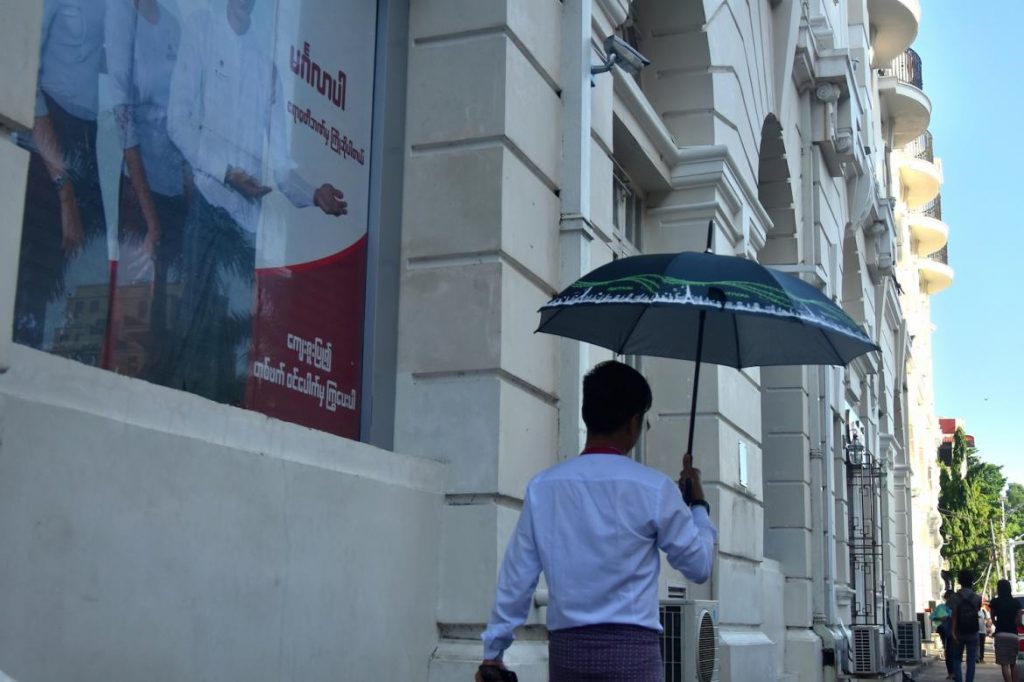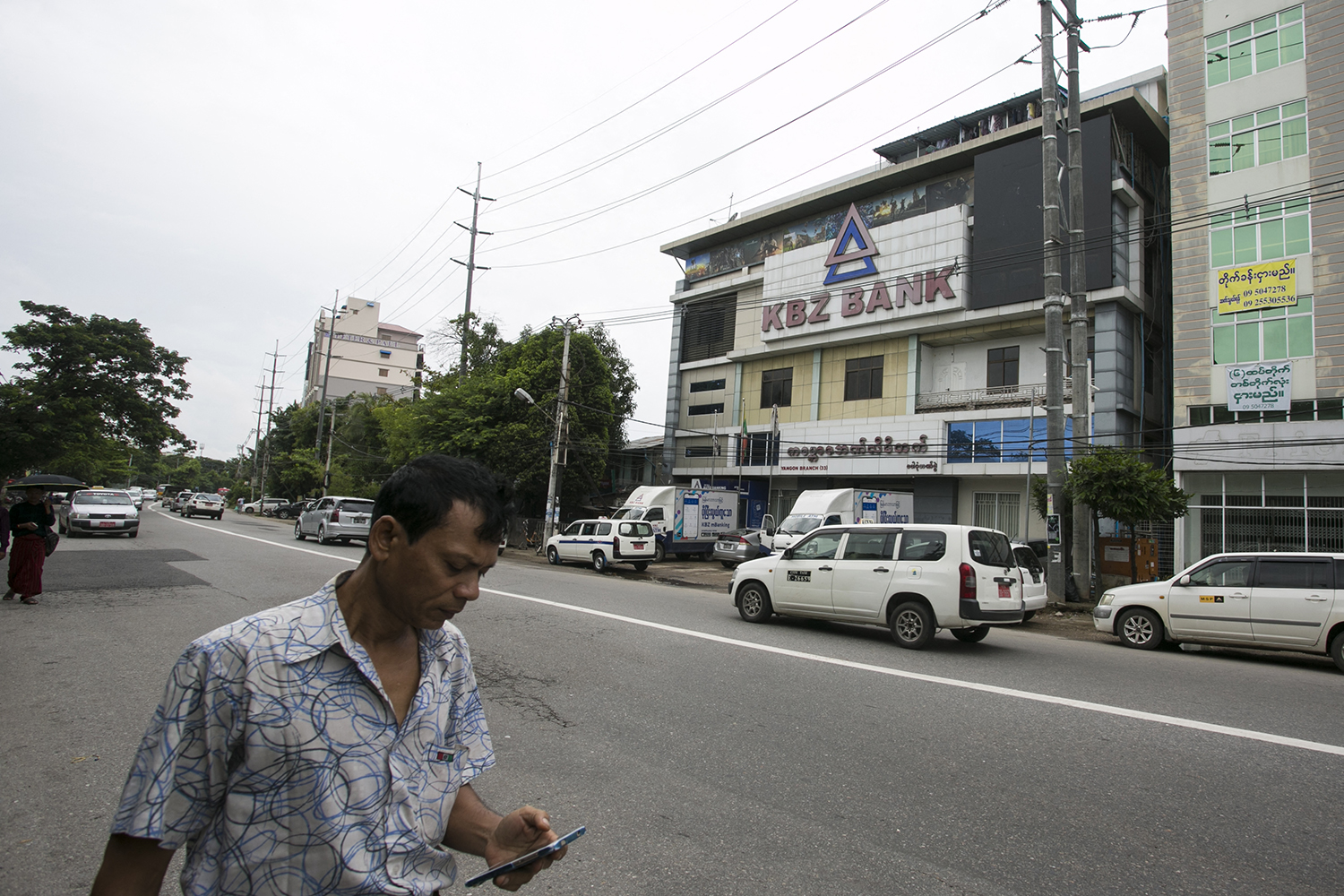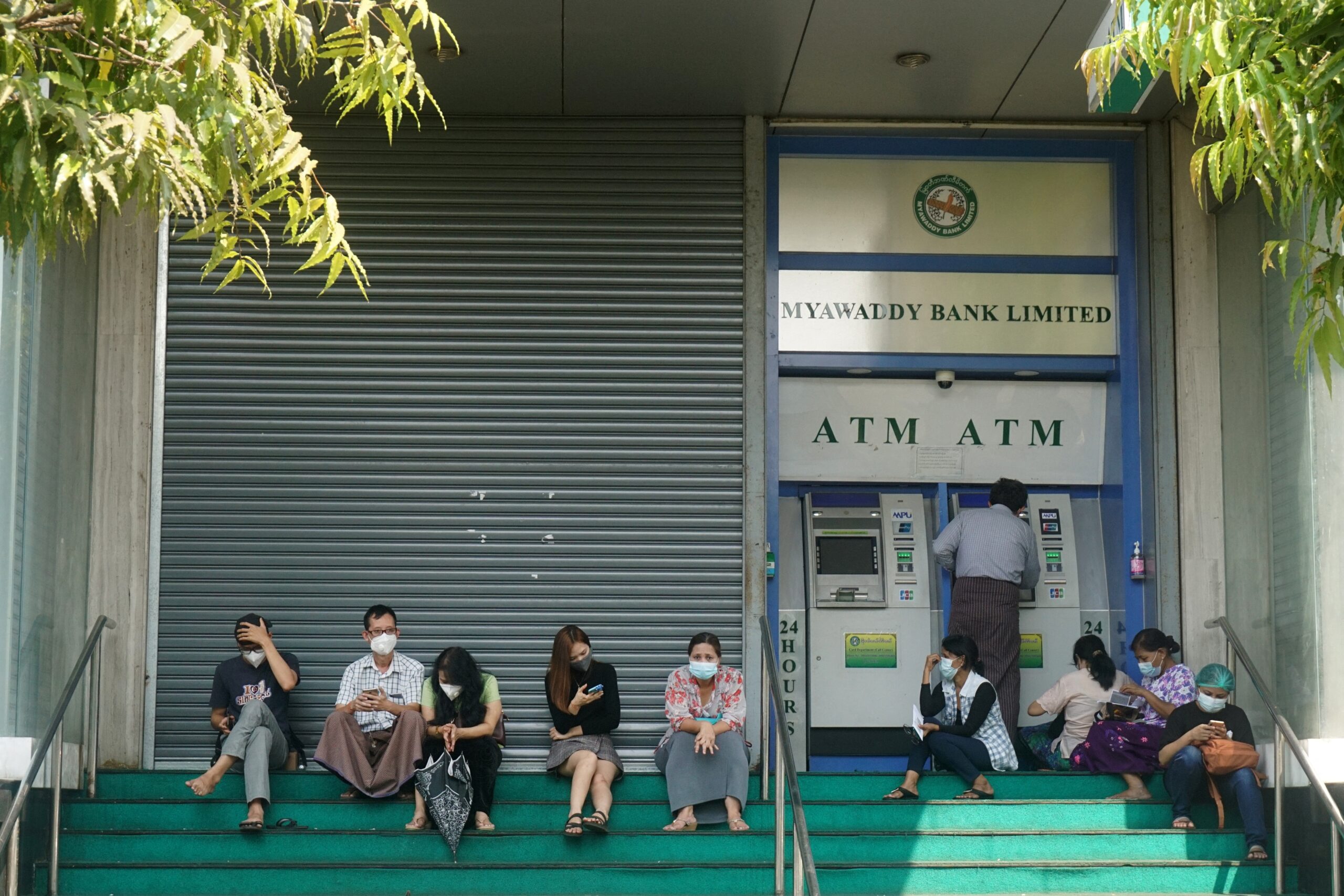By KYAW LIN HTOON | FRONTIER
YANGON – Myanmar Credit Bureau Limited has received a Central Bank licence to become the country’s first credit agency and is expected to be operational within one year. While the arrival of a credit agency has been long awaited, experts told Frontier that challenges to data collection mean it could be some time before it can facilitate greater financial inclusion by making credit more widely available.
But just getting to the starting line has been a fight. Four years ago the Myanmar Banks Association signed an agreement with Singapore’s Asian Credit Bureau Holdings, which was then called NSP Holdings, to set up the Myanmar Credit Bureau. The company has since waited for the government to pass the Financial Institutions Law and enact a regulatory framework, which was issued by the Central Bank in April 2017.
Experts said the Myanmar Credit Bureau is now likely to face difficulties collecting data on credit and payments from individuals and companies, which have not shared this kind of information before.
U Kyaw Soe Min, deputy managing director of Myanma Apex Bank and a volunteer member of the committee formed to establish the credit bureau, said he did not think the organisation would immediately be able to support greater access to finance.
Support more independent journalism like this. Sign up to be a Frontier member.
“We need to set up a system and run it with the data. But to get accurate payments data from individuals and businesses who have not borrowed from banks before could be challenging,” he said.
The company, which is 60 percent owned by 23 local banks and 40 percent by the Singaporean partner, will assemble data which it will use to award creditworthiness ratings to companies and individuals. It will sell this data to financial institutions including banks and microfinance companies, to inform their lending decisions.
The International Finance Corporation, the private-sector lending arm of the World Bank, has been working with the Central Bank and other stakeholders to develop the credit bureau and associated mechanisms, including around licencing, data collection and protection.
It will support the bureau’s collection of data on loans, credit history and taxation, and assist with its expansion to include data on microfinance, rent and utility payments. The IFC is also building regulatory capacity at the Central Bank, which will oversee the bureau’s operations.
U Aye Tun, managing director of Aung Thein Than Company, said he did not think the credit bureau would be directly useful for businesses such as his, which already have access to capital. However, he said it could be very helpful for small and medium enterprises (SMEs).
“The banks will be able to more easily assess the reliability of companies or individuals. So this is very good for those who have no access to finance,” he said. “At the start, it could help small and medium enterprises, though is not as easy to [rate] individuals as in developed economies.”
U Than Lwin, senior adviser to KBZ Group, said that while the credit bureau will help banks to make lending decisions, other pillars of financial infrastructure and regulation are still needed.
“As the credit bureau emerges, it will be easier for lenders to assess the creditworthiness of borrowers. But private insurance companies are not able yet to give credit guarantee services, which will be really important for this sector,” he said.
State-owned Myanma Insurance offers credit guarantee insurance, which it launched in 2014. U San Thein, a senior technical expert at German development agency GIZ, said the product is too risky for private insurers. “But we needed the service, especially for SME loans, so Myanma Insurance offers it.”
He said the Ministry of Planning and Finance is writing draft regulations that would provide a framework for the liberalisation of the industry that would enable private insurance firms to sell credit guarantee insurance.
U Myo Min Thu, managing director of AYA Myanmar Insurance said that until this happens, the private sector will lose out. “We have asked the government to liberalise such core services in this sector,” he said. “But nothing has happened yet.”







